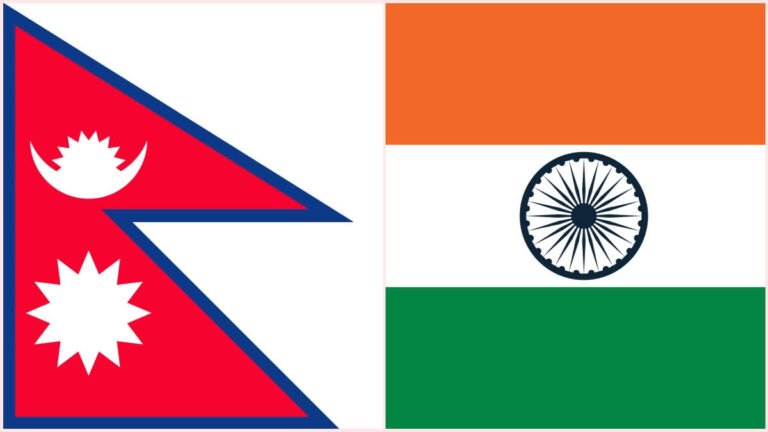New Delhi: The reappointment of Shankar Prasad Sharma as Nepal’s ambassador to India, just over a month after he was recalled under the previous government, is further evidence of the important role politics plays in the Himalayan nation’s diplomatic appointments in key countries.
According to Nepali media reports, Sharma is one of 18 countries that have recommended him as ambassador. He served as Nepal’s ambassador to India for the past two years but was recalled from that post last month following a change of government in Kathmandu. Then, earlier this month, Nepal saw another change of government and Sharma was reappointed to his post in New Delhi.
Sharma, who previously served as ambassador to the United States, was appointed ambassador to India in March 2022 after a new coalition government of the Communist Party of Nepal-Maoist Centre (CPN-Maoist Centre) and the Nepali Congress came to power in December last year. Though Nepal has professional diplomats, ambassadorial appointments to major countries are usually political in nature. Sharma was appointed to India through the Nepali Congress quota.
However, the past few months have seen some dizzying developments in Nepal’s ever-changing political landscape. In March this year, Pushpa Kamal Dahal, the Prime Minister of the Communist Party of Nepal-Maoist Centre, severed all ties with the Nepali Congress and invited former Prime Minister KP Sharma Oli’s Communist Party of Nepal-Unified Marxist-Leninist (CPN-UML) to join his coalition government. The initial partners of this new coalition government were the Rastriya Swatantra Party (RSP) and the Janata Samajbadi Party (JSP).
After the new coalition government was formed, ambassadors from 11 countries, including India’s Ambassador Sharma, were recalled on June 6 this year.
Meanwhile, both Dahal and Oli are reportedly unhappy with the new arrangement. Dahal has reportedly admitted that the country’s current ad hoc politics is unsustainable and said there is little that can be done other than continuing to rotate ministers. Oli’s unhappiness with the arrangement was also evident when he described the annual budget presented by the government as a “Maoist budget.”
All this led to mistrust between the CPN-UML and the CPN-Maoist Centre. Later, Dahal again reached out to the Nepali Congress for the past month or so to form a Government of National Accord. This became a major cause of mistrust between the CPN-UML and the CPN-Maoist Centre. However, when the Nepali Congress rejected Dahal’s proposal, the CPN-UML decided to take things into its own hands.
Following a series of rapid political developments from the last week of June to the beginning of this month, on the night of July 1st and 2nd, former Prime Minister and Nepali Congress Chairman Sher Bahadur Deuba and Oli signed an agreement to form a new coalition government in Kathmandu. According to the agreement, Oli and Deuba will take turns as Prime Minister for the remaining three and a half years of the current government’s term. It goes without saying that the Nepali Congress and the Communist Party of Nepal-United National Alliance are the two largest parties in the lower house of the Nepali parliament. Therefore, when Dahal cast his vote at the polling station on July 12th, he lost as expected. Oli was then re-elected as Prime Minister.
Now that the Nepali Congress has returned to the ruling coalition, Sharma has been reappointed to his post in New Delhi. Interestingly, his profile remains on the Nepalese embassy website, despite his recall last month.
Mr. Sharma holds a PhD in Economics from the University of Hawaii. He served as Vice Chairman of the National Planning Commission of Nepal from 2002 to 2006. He has also participated in the United Nations General Assembly, the World Bank and IMF Annual Meetings, the SAARC Summit, the UN ESCAP Annual Meetings and many other international conferences.
Prior to joining the National Planning Commission in 1997, he served as Senior Economic Adviser to the Ministry of Finance of Nepal, Senior Economist at the Institute of Southeast Asian Studies in Singapore and Research Fellow at the East-West Center in Hawaii. He was also Professor of Economics at the Centre for Economic Development Management, Tribhuvan University.
Mr. Sharma also helped draft Nepal’s new constitution and served as the Principal Consultant to the Constitutional Committee on “Natural Resources, Economic Rights and Public Revenue Sharing.” He has published (edited or authored) eight books on economics, energy and the environment in the Asia-Pacific region, including Nepal.
He has also worked as a consulting expert for a number of national and international organisations, including the Asian Development Bank, the World Bank and UNDP, and was the Editor of the ASEAN Economic Bulletin and Consulting Editor of Hydrocarbon Asia, both published in Singapore, for about seven years.
Sources familiar with Nepali affairs say Sharma has fared very well during his tenure in India. “Sharma played a very active role in resolving certain issues between India and Nepal,” a source told ETV Bharat. “Being an economist and an academic, he has not done anything controversial.”
It is worth mentioning here that under Sharma’s supervision, Nepali nationals could get Indian SIM cards after entering India, a problem that Nepali nationals had been facing for a long time. Foreigners without an Indian visa in their passports are not issued Indian SIM cards. Nepali nationals do not require a visa to come to India.
If reappointed, Sharma will again have to go through diplomatic protocol and submit his credentials to the President of India.


